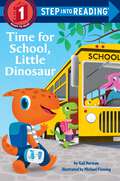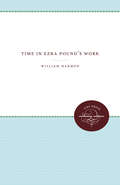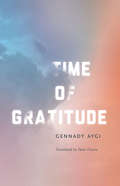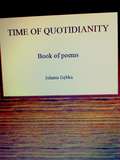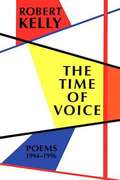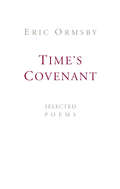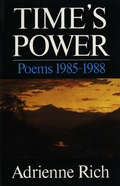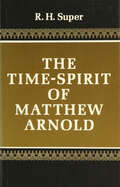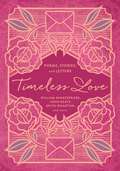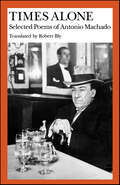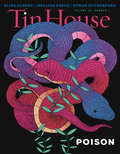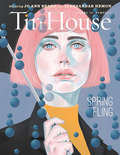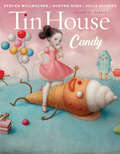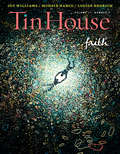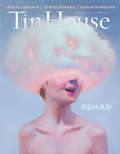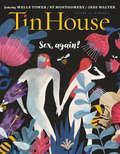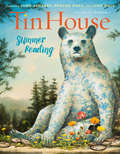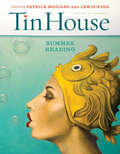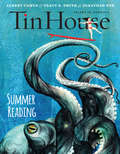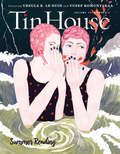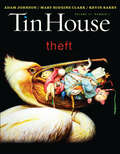- Table View
- List View
Time and the Erotic in Horace’s Odes
by Ronnie AnconaIn Horace's Odes love cannot last. Is the poet unromantic, as some critics claim? Is he merely realistic? Or is he, as Ronnie Ancona contends, relating the erotic to time in a more complex and interesting way than either of these positions allows? Rejecting both the notion that Horace fails as a love poet because he undermines the romantic ideal that love conquers time and the notion that he succeeds becauses he eschews illusions about love's ability to endure, this book challenges the assumption that temporality must inevitably pose a threat to the erotic. The author argues that temporality, understood as the contingency the male poet/lover wants to but cannot control, explains why love "fails" in Horace's Odes.Drawing on contemporary theory, including recent work in feminist criticism, Ancona provides close readings of fourteen odes, which are presented in English translation as well as in Latin. Through a discussion of the poet's use of various temporal devices--the temporal adverb, seasonal imagery, and the lover or beloved's own temporality--she shows how Horace makes time dominate the erotic context and, further, how the version of love that appears in his poems is characterized by the lover's desire to control the beloved. The romantic ideal of a timeless love, apparently rejected by the poet, emerges here instead as an underlying element of the poet's portrayal of the erotic. In a critique of the predominant modes of recent Horatian scholarship on the love odes, Ancona offers an alternative view that takes into account the male gender of the lover and its effect on the structure of desire in the poems. By doing so, she advances a broader project in recent classical studies that aims to include discussion of features of classical literature, such as sexuality and gender, which have previously escaped critical attention.Addressing aspects of Horace as a love poet--especially the dynamics of gender relations--that critics have tended to ignore, this book articulates his version of love as something not to be championed or condemned but rather to be seen as challengingly problematic. Of primary interest to classicists, it will also engage the attention of scholars and teachers in the humanities with specializations in gender, sexuality, lyric poetry, or feminist theory.
Time for School, Little Blue Truck: A Back To School Book For Kids (Little Blue Truck Ser.)
by Alice SchertleRide along to school with the #1 New York Times best-selling Little Blue Truck and meet Blue's new friend: a bright yellow school bus. Beep-beep! Little Blue Truck and his good friend Toad are excited to meet a bright yellow school bus on the road. They see all the little animals lined up in the school bus's many windows, and Blue wishes he could be a school bus too. What a fun job-but much too big for a little pickup like Blue. Or is it? When somebody misses the bus, it's up to Blue to get his friend to school on time. Beep! Beep! Vroom!
Time for School, Little Dinosaur (Step into Reading)
by Gail HermanFrom the most trusted brand of leveled readers, this Step 1 Step into Reading book is perfect for back-to-school and features an adorable dinosaur world that looks a lot like ours.Who&’s ready to go back to school? Little Dinosaur is! This simple Step 1 book will help your eager little dinosaur get ready. Though his friend Spikey teases him, Little Dinosaur is first in line for the school bus on the first day of school. Will Spikey learn to get ready as well as Little Dinosaur does, or will he miss the bus? Perfect for first-day jitters or for any parent wanting a model of good behavior for the occasionally trying getting-ready-for-school hour! Step 1 Readers feature big type and easy words for children who know the alphabet and are eager to begin reading. Rhyme and rhythmic text paired with picture clues help children decode the story.
Time for a Rhyme
by Ellen WilkieShare this book with a child age three and up. With your help children can guess words to rhyme with thirteen starter words. They turn the page to find the book's examples of words that match the clue. All clues and answers are illustrated with cheerful, large, easy to identify pictures which are described. Three or four additional rhymes are given for each of the main rhyming pairs. Here's a fun learning game to play with the little one in your life. It can also ease a child into snuggling down and going to sleep.
Time in Ezra Pound's Work
by William HarmonThroughout nearly sixty-five of writing, Pound specialized on the suffocating effects of time on poetry, aesthetic form, and history. Harmon examines Pound's strategies for dealing with time and arrives at a persuasive reading of Pound's works in general and of the The Cantos in particular. By concentrating on a single theme and technique, the author demonstrates a coherence in the writing that elucidates the corpus for both the specialist and the casual reader.Originally published in 1977.A UNC Press Enduring Edition -- UNC Press Enduring Editions use the latest in digital technology to make available again books from our distinguished backlist that were previously out of print. These editions are published unaltered from the original, and are presented in affordable paperback formats, bringing readers both historical and cultural value.
Time of Gratitude
by Peter France Gennady AygiA collection of extraordinary essays by one of the seminal Russian poets of the twentieth century Gennady Aygi’s longtime translator and friend Peter France has compiled this moving collection of tributes dedicated to some of the writers and artists who sustained him while living in the Moscow “underground.” Written in a quiet intensely expressive poetic style, Aygi’s inventive essays blend autobiography with literary criticism, social commentary, nature writing, and enlightening homage. He addresses such literary masters as Pasternak, Kafka, Mayakovsky, Celan, and Tomas Tranströmer, along with other writers from the Russian avant-garde and his native Chuvashia. Related poems by Aygi are also threaded between the essays. Reminiscent of Mandelstam’s elliptical travel musings and Kafka’s intensely spiritual jottings in his notebooks, Time of Gratitude glows with the love and humanity of a sacred vocation. “These leaves of paper," Aygi says, 'are swept up by the whirlwind of festivity; everything whirls—from Earth to Heaven—and perhaps the Universe too begins to swirl. Everything flows together in the rainbow colors and lights of the infinite world of Poetry.'
Time of Quotidianity
by Jolanta GębkaA collection of satirical poetry written by Jolanta Gębka, collected in the years 1995-2017
Time of Voice: Poems 1994-1996
by Robert KellyRobert Kelly's long project in verse, filling nearly 40 collections, has shown him to be a master of intellectual energy, kinetic power and primal apprehension, with a range of interest and symbolic resonance as extensive and diverse as any contemporary poet's. Kelly's new poems in The Time of Voice are perhaps his most accessible to date, underscoring the familiar brilliance of mind and movement with a new depth of emotional understanding. This is writing that jump-starts not only the cerebrum, nerves and senses, but the feeling heart: a poetry of key moments, necessary rituals, inevitable passages, recurrent beginnings and end.
Time's Covenant
by Eric OrmsbyBringing together Eric Ormsby's entire poetic oeuvre thus far, including a healthy selection of previously unpublished poems, Time's Covenant is timeless, by one of America's best poets. Essential reading.
Time's Power: Poems 1985-1988
by Adrienne RichTime's Power is a new book by a major American poet, and a landmark in a distinguished ongoing career. For thirty years, Rich's poetry has revealed the individual personal life--sexualities, loves, damages, struggles--as inseparable from a wider social condition, a world with others, in which the empowering of the disempowered is increasingly the source of human hope. Now her mature vision engages with the power of time itself: memory and its contradictions, the ebb and flow between parents and children, the deaths we all face sooner or later, the meaning of human responsibility in all this. "Letters in the Family," for example, is written in the voices of three women--from the Spanish Civil War, from a Jewish rescue mission behind Nazi lines, and from present-day Southern Africa. Time's Power shows Rich writing with unprecedented range, complexity, and authority.
Time-Spirit of Matthew Arnold
by R. H. SuperThe Time-Spirit of Matthew Arnold—his remarkable grasp of the main intellectual currents of the day—is the quality of mind that most recommends Arnold to the modern reader. Trained in the classics and theology, Arnold was able to evaluate the writings of his contemporaries in terms of the main traditions of Western thought, and by plotting the direction of intellectual currents in the past he could project the course of the main streams into the future. Dr. Super focuses on Arnold's achievement as a poet, a social political thinker, and a religious mind. He gives detailed treatment to Arnold's major poetical work, Empedocles on Etna; he analyzes Arnold's liberalism and contrasts it with the Utilitarianism of John Stuart Mill; and he examines Arnold's approach to Christianity in a penetrating discussion of Arnold's book Literature and Dogma. The Time-Spirit of Matthew Arnold demonstrates the impact such figures as Carlyle, Mill, and Newman had upon Arnold, as well as the more enduring cast his mind took from Goethe and Spinoza. Throughout, the book reveals the essential homogeneity of Arnold's work and its continued usefulness in dealing with twentieth-century problems in politics, education, and religion.
Timeless Love: Poems, Stories, and Letters (Timeless Classic Series)
by William Shakespeare Edith Wharton John KeatsThis beautiful, giftable collection celebrates the beauty and the agony of love through classic poems, stories, and letters from beloved writers.Because it defines human existence, love is one of art&’s favorite subjects. Timeless Love: Poems, Stories, and Letters celebrates the mysterious nature of love and passion by bringing together classic works by beloved writers through the ages. Including stories, poems, and letters from Shakespeare, Elizabeth Barret Browning, John Keats, Edith Wharton, and more, this collection explores how each love is singular—yet love itself is universal. Hand-selected and presented in a lovely, gift-worthy package, Timeless Love will make a romantic, thoughtful gift for the reader in your life or the perfect addition to a collector&’s shelf.
Times Alone: Selected Poems of Antonio Machado (Wesleyan Poetry in Translation)
by Antonio MachadoAntonio Machado, a school teacher and philosopher and one of Spain's foremost poets of the twentieth century, writes of the mountains, the skies, the farms and the sentiments of his homeland clearly and without narcissism: "Just as before, I'm interested/in water held in;/ but now water in the living/rock of my chest." "Machado has vowed not to soar too much; he wants to 'go down to the hells' or stick to the ordinary," Robert Bly writes in his introduction. He brings to the ordinary—to time, to landscape and stony earth, to bean fields and cities, to events and dreams—magical sound that conveys order, penetrating sight and attention. "The poems written while we are awake…are more original and more beautiful, and sometimes more wild than those made from dreams," Machado said. In the newspapers before and during the Spanish Civil War, he wrote of political and moral issues, and, in 1939, fled from Franco's army into the Pyrenees, dying in exile a month later. When in 1966 a bronze bust of Machado was to be unveiled in a town here he had taught school, thousands of people came in pilgrimage only to find the Civil Guard with clubs and submachine guns blocking their way. This selection of Machado's poetry, beautifully translated by Bly, begins with the Spanish master's first book, Times Alone, Passageways in the House, and Other Poems (1903), and follows his work to the poems published after his death: Poems from the Civil War (written during 1936 – 1939).
Tin House 77: Poison
by Win McCormackAn award-winning quarterly, Tin House started in 1999, the singular love child of an eclectic literary journal and a beautiful glossy magazine. Our fall issue will be packing stories, essays, and poems inspired by poison pens, poison pills, and general-use poisons. But don't worry, reading is the antidote, too. Featuring Elisa Albert, Melissa Febos, Ethan Rutherford, Shane McCrae, Deb Olin Unferth, and more.
Tin House 79: 20thanniversary
by Rob Spillman Win McCormack Holly MacArthurStop to admire the roses, thorns and all, with new fiction from the likes of Jo Ann Beard and Aleksandar Hemon; poets including Gabrielle Calvocoressi, Jericho Brown; essays by Amy Lam and John Freeman; and much more.
Tin House: Candy (Tin House Magazine #75)
by Rob Spillman Win McCormack Holly MacArthurFeaturing fiction, nonfiction, and poetry from established authors and new voices alike, the Candy Issue explores those sweet, seductive things we crave, but that might also ruin us. Candy is all sugary, brightly colored, dangerous temptation—from jawbreakers to candy floss. From the comforting and childlike to those desirable things that can easily turn lurid and even destructive.Featuring stories, essays, and poems on appetites and the pursuit of pleasure, the hard edge on something sickly sweet, and the eternal allure of something you can’t quite trust. Candy—everyone wants more than is good for them.
Tin House: Faith (Tin House Magazine)
by Rob Spillman Win Mccormack Holly MacarthurTin House's Faith Issue brings you all the things you've come to expect from the acclaimed literary journal. Packed with faithful fiction, introspective essays, and artful poetry, this issue is perfect company for an afternoon in the shade. Showcasing fiction, poems, essays, and interviews dealing not only with religious faith but also faith in knowledge, math, science, people, animals, places, institutions, food, color--anything that could possibly be a receptacle for one's faith, questioned or unquestioned, held or lost.
Tin House: Rehab (Tin House Magazine)
by Rob Spillman Win MccormackAn award-winning quarterly, Tin House started in 1999, the singular love child of an eclectic literary journal and a beautiful glossy magazine. Kick the habit, rebuild that public image, and get back in fighting shape with Tin House this Spring. We're coming at Rehab from every possible angle with new fiction, nonfiction, and poetry from established authors and New Voices alike.
Tin House: Sex, Again? (Tin House Magazine)
by Rob Spillman Win Mccormack Holly MacarthurSex, Again? Didn’t we just go there? Well, actually it has been twelve years since Tin House had sex, or an issue with sex, that is, a sex issue. I think you get what we’re after. Featuring fiction, nonfiction, and poetry from established writers and new voices, Issue 69 will try hard to keep it exciting and fresh, even after all these years.
Tin House: Summer 2016 (Tin House Magazine)
by John Ashbery Rob Spillman Win Mccormack Holly Macarthur Dorthe Nors Josh WeilWhether on a picnic blanket or a porch swing, the fiction, nonfiction, and poetry in Tin House will help you while away the hours. Tin House is your literary companion for the dog days of Summer. Whether on a picnic blanket or a porch swing, the fiction, nonfiction, and poetry in Tin House will help you while away the hours. Featuring new work from Miller Oberman, Michael Dickman, and Malerie Willens.
Tin House: Summer Reading (Tin House Magazine #Volume 16 Number 4)
by Rob Spillman Win McCormack Holly MacArthur<P> Tin House's Summer Reading brings you all the things you've come to expect from the acclaimed literary journal. Packed with thrilling fiction, introspective essays, and artful poetry, this issue is perfect company for an afternoon in the shade. <P> Summer Reading 2015 features previously untranslated work from 2014 Nobel Prize winner Patrick Modiano on Paris and a timely essay from Lewis Hyde revisiting the 1964 murder of two young black men in Mississippi. In addition to these works by established authors, this issue also presents work from five New Voices in fiction, nonfiction, and poetry. Featuring fiction from: Jodi Angel, Smith Henderson, Greg Hrbek, Tara Ison, Patrick Modiano, Matthew Socia, and Sarah Elaine Smith Poetry by: Catherine Barnett, Cody Carvel, Diana M. Chien, Rita Gabis, Robert Duncan Gray, Kimiko Hahn, Ed Skoog, and Jenny Xie Nonfiction by: Mary Barnett, David Gessner, and Lewis Hyde Lost & Found: S. Shankar on Agnes Smedley, John Reed on André Gide, Jessica Handler on Berton Roueché, Jonathan Russell Clark on H.D., and Rachel Riederer on Barbara Grizzuti Harrison.
Tin House: Summer Reading 2017 (Tin House Magazine #0)
by Rob Spillman Win McCormack Holly MacArthurAn award-winning quarterly, Tin House started in 1999, the singular love child of an eclectic literary journal and a beautiful glossy magazine. Drop it in your beach bag with the sunscreen and kadima paddles—our annual summer reading issue will feature a smorgasbord of new writing from established and new voices.
Tin House: Summer Reading 2018
by Rob Spillman Win McCormack Holly MacArthurThrow on your sunglasses and prop up the parasol, Tin House is back with another Summer Reading edition. Enjoy the hottest new fiction, shine some light with uniquely personal nonfiction, and then cool off in the shade with the poets.
Tin House: Theft (Tin House Magazine)
by Rob Spillman Win Mccormack Holly MacarthurTin House's Theft Issue spends some time in the larcenous land of literature with stolen stories, embezzled essays, and pick-pocketed poetry. "Talent borrows, genius steals" is usually attributed to Oscar Wilde, and occasionally Pablo Picasso. There is, however, no record of either one actually saying or writing this. T. S. Eliot, on the other hand, wrote, "Immature poets imitate; mature poets steal; bad poets deface what they take, and good poets make it into something better, or at least something different." Theft and appropriation have always been artistic engines, and in this issue of Tin House, those engines run hot . . . Featuring new work from Laura Lippman, Kevin Young, Mary Ruefle, George Singleton, Victor LaValle, Alissa Nutting, and more.


